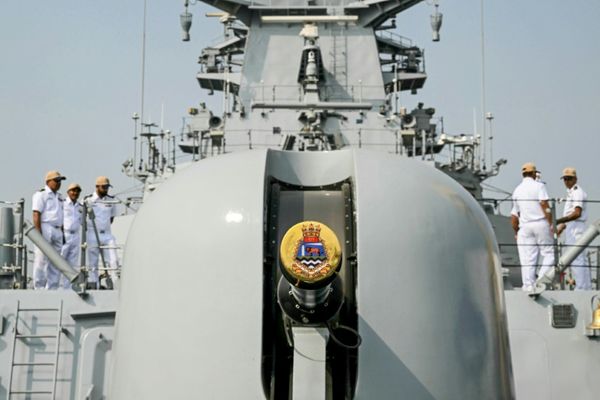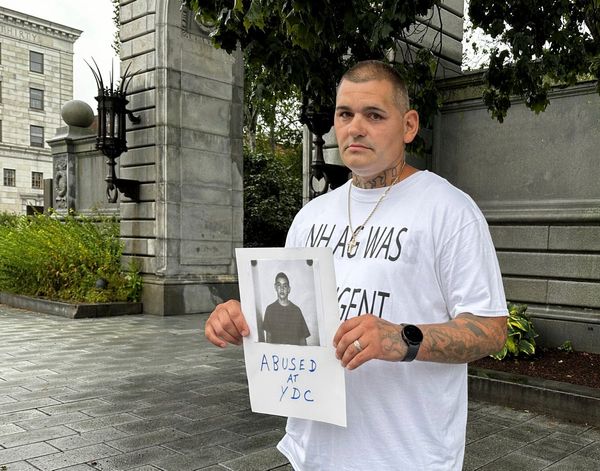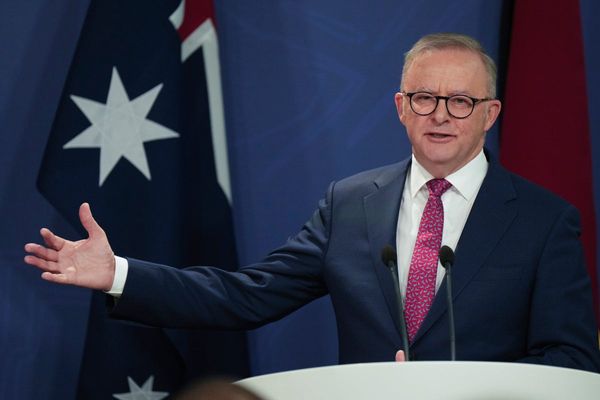For decades, Europe relied on Russia for more than a third of its coal, oil and gas. But when Russia invaded Ukraine in February that all changed — and it's caused major disruptions to global energy markets and people's lives around the world.
You don't have to look far in Europe to see just how hard the energy crisis is biting.
In France, homes and offices will be heated to a maximum of 19 degrees Celsius this winter, Germany has stopped lighting public monuments and Italians have been told to turn their heating off for an extra hour each day.
"The message from Paris is one of energy sobriety," said Emily Holland, an assistant professor in energy politics at the US Naval War College.
Despite a recent drop in gas prices from their record highs a few months ago, Dr Holland told ABC News Daily that high energy prices are continuing to affect people across Europe.
"The cost of electricity is quite simply astronomical," she said.
"There were households in the UK getting £1,000 bills for electricity where they were paying £80 last year."
While that cost hike is undoubtedly affecting individuals, Dr Holland predicted the larger impact will be on the European economy.
"We're going to see energy intensive industries — manufacturers of things like fertilisers or chemicals — they will probably have to ration energy," she said.
"So they're going to have to cut production and that, of course, has an effect on people's jobs."
Fortunately, European countries have managed to fill up their gas reserves in recent months with Gas Infrastructure Europe recording stores higher than 90 per cent across the EU.
But Dr Holland said those supplies still won't be enough for European countries to continue using energy resources as they have in previous years.
"To get through the winter, they'll need to cut about 15-20 per cent of their energy demand, which is really significant if you think about it."
As France revealed its energy sobriety plan, economics and finance minister Bruno Le Maire tweeted a photo of himself declaring: "You won't see me in a tie any more, you'll see me in a turtleneck. It will allow us to save energy."
A crisis decades in the making
The cause of Europe's current energy woes, according to Dr Holland, stretches back to the decision by European countries to increase their reliance on Russian energy in the 1960s.
While that worked well in the latter part of last century, Dr Holland said Russia's annexation of Crimea in 2014 caused many energy security experts to question whether the strategy still made sense.
"You could see that Russia was this aggressive actor seeking to expand its borders in Europe, but Europeans still decided to move forward with increasing their dependence on Russian energy," she said.
The true vulnerability of Europe's energy position became much more apparent after Russia invaded Ukraine earlier this year.
The move prompted immediate sanctions of Russian oil exports and a sudden re-think of Europe's energy strategy as gas imports from Russia were cut by around 80 per cent.
"Europe decided that they no longer wanted to be in the arrangement that they were in previously, which was buying lots of cheap Russian energy," Dr Holland said.
The result, released earlier this year, is the European Commission's "REpowerEU" strategy, designed to increase renewables and reduce dependence on Russian fossil fuels.
Energy pipelines severed
Tensions over energy supply took a further twist in September after explosions on the main gas pipeline linking Russia and Europe closed off an important supply route.
The four explosions, which hit the Nord Stream 1 and Nord Stream 2 undersea pipelines stretching from Germany to Russia, were widely suspected to have been the result of sabotage — though exactly who to blame was unclear.
Russia blamed the United States which its President Vladimir Putin said was the main beneficiary of the pipes being out of operation.
"The sanctions were not enough for the Anglo-Saxons: they moved onto sabotage," Putin said.
"It is hard to believe but it is a fact that they organised the blasts on the Nord Stream international gas pipelines."
But Dr Holland said there were also theories that Russia itself blew up the pipelines as part of a strategy to threaten greater pain for Europe.
"Some people think that Russia blew up this pipeline as a message to say, 'Okay, Europe you're in this energy crisis already, your energy infrastructure is vulnerable and we could blow up other energy infrastructure'," Dr Holland said.
A second theory, she explained, was that the attack was designed to demonstrate to European leaders that Russia could launch attacks on other European energy infrastructure.
"Russia has been very hesitant, it really has been careful not to instigate a war with NATO — it does not want to fight a war with NATO," she said.
"So one potential explanation is that blowing up their own infrastructure would not be considered an attack on NATO."
Despite multiple investigations, Dr Holland suspected it's unlikely it will ever be known exactly who sabotaged the pipelines.
What is for sure, she said, is that Europe's need to find alternative energy supplies would have ramifications around the world.
"Even though it's only Europe that's in this main energy crisis, they're trying to buy up every last drop of non-Russian energy, so that means that globally prices are higher," Dr Holland said.
"This has basically just put the cost of electricity through the roof."
It's a crisis which has now become particularly apparent in low income countries.
"For poor countries in Asia, like Sri Lanka and Pakistan, they can no longer afford to buy the energy, the supplies that they need," Dr Holland said.
"They simply can't afford it — prices are too high.
"So this is causing a serious energy crisis in Asian markets as well."
Russia's growing energy relationship with China
But while many Asian countries have been struggling to find enough cheap energy, that could be about to change.
With Russian energy supplies to Europe increasingly restricted, Russia has been looking to other markets, particularly in Asia where Dr Holland said its clear trade was set to increase.
"Russia became the number one supplier of oil products to China, supplanting Saudi Arabia for the first time," she said.
"So it's really just accelerating this trend of Russia being forced to turn to Asian markets to sell its commodities."
The winners of the recent surge in energy prices have been fossil fuel companies — and Australia's gas giants are no exception.
Prices for Australian liquefied natural gas (LNG) exports have more than doubled from around $7.5 a gigajoule in 2020-21 to $16 a gigajoule in 2021-22.
A recent report by think tank, The Australia Institute, concluded Australian LNG producers have generated an extra $40 billion in revenue compared with the previous year, due to the recent uptick in energy prices.
But in the longer term, Dr Holland said it was possible Russia shifting its gas supply towards Asian markets could disadvantage Australian companies.
"Australia as an energy exporter to Asian markets is going to face more competition now there's more Russian energy coming in," she said.
"Will this mean that they will get less for selling their commodities to Asian markets? Or will that mean that competition for every bit of energy is so much higher that now prices will be elevated?"
The inevitable shift
Other energy analysts aren't convinced Russia will be able to quickly shift its gas supply to Asia.
"The ironic and paradoxical thing is that, despite having a 3000 km border with China, Russia supplies so little gas to Asia," said Graeme Bethune, CEO of energy advisory firm QuestEnergy.
"Australia, which is much further away, has been able to supply more gas to that market than Russia has."
Russia has recently built a gas pipeline to China called Power of Siberia, and has plans for another pipeline that would pass through Mongolia.
But Dr Bethune did not believe Russia could become a major exporter to Asia any time soon.
"It would require infrastructure and quite a lot of investment for Russia to become a serious exporter to Asia", he said.
Either way, energy analysts say it's certain that our relationship with energy is going to have to shift.
"In the next few years, if there's a cold winter, people are going to have to revert to things like burning wood … taking you back to a time when energy was not so cheap and plentiful," Dr Holland said.
"We are entering a period in which energy is no longer as cheap or as plentiful as it was prior to Russia's invasion of Ukraine, and we're probably going to be in that world for the next 5 to 10 years."







